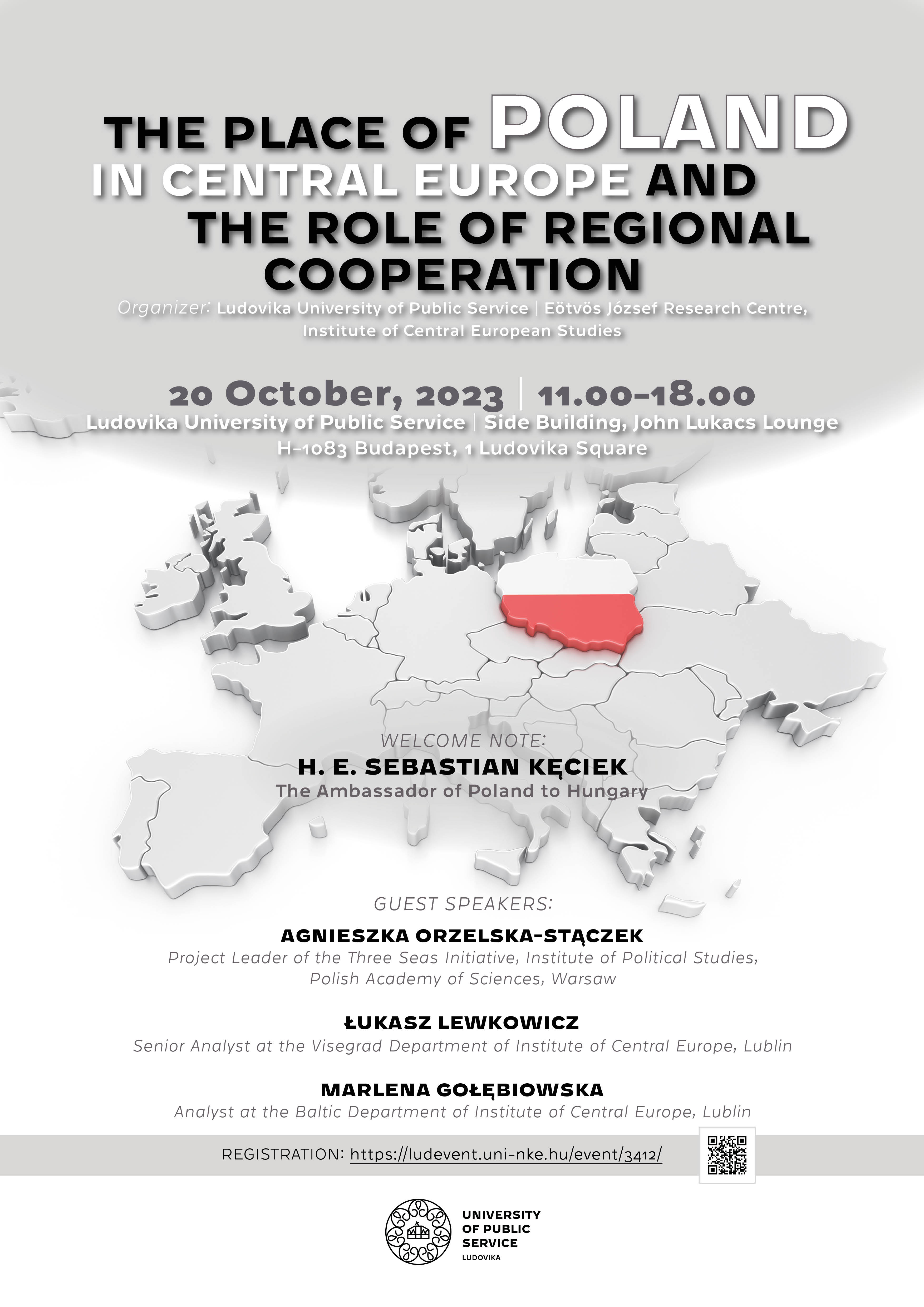The Place of Poland in Central Europe and the Role of Regional Cooperation
by , , , ,
Ludovika Szárnyépület/Földszint-John Lukacs Társalgó
Ludovika Szárnyépület
The Russian-Ukrainian war of over a year and a half ago has also altered the regional balance of power in Central Europe. The question is what will happen to traditional forms of cooperation within the region (e.g. the Visegrad Group) and what role can be played by relatively new cooperations (e.g. the Three Seas Initiative, the Bucharest Nine). On the other hand, we are looking for an answer to the question of what role Poland, as the country with the largest territory, population and GDP in our region, plays in these regional cooperation activities, and what are its goals and motivations in the global space. Thirdly, the presentations at the conference may also provide an answer to the question of whether Poland's prominent role will draw more world attention to our region and whether other Central European countries can benefit from it.
10. 45 – 11.00 Registration
Welcome Notes
11.00–11.05 Pál Hatos (Head of the Institute of Central European Studies, Eötvös József Research Centre, Ludovika University of Public Service, Budapest)
11.05–11.10 Bernát Török (Director of the Eötvös József Research Centre, Ludovika University of Public Service)
11.10–11.20 Sebastian Kęciek (Ambassador Extraordinary and Plenipotentiary of the Republic of Poland to Hungary)
Lectures
11.30–12.00 Miklós Mitrovits (Senior Research Fellow, Institute of Central European Studies, Ludovika University of Public Service, Budapest)
Prometheism, Intermarium, Eastern Policy - Historical and Theoretical Backgrounds of Regional Cooperation from the Polish Perspective
12.00–12.30 Agnieszka Orzelska-Stączek (Head of the Project The Three Seas Initiative Research Center at the Institute of Political Studies, Polish Academy of Sciences, Warsaw)
What is the Three Seas Initiative? Contradictory narratives on Central European regional cooperation in academic literature
12.40–14.15 Break
14.15 – 14.45 Łukasz Lewkowicz (Senior Analyst, Department of the Visegrad Group Institute of Central Europe, Lublin/ Assistant Professor, Maria Curie-Skłodowska University, Lublin)
Formats of Regional Cooperation from the Perspective of Polish Foreign Policy
14.45 – 15.15 Marlena Gołębiowska (Senior Analyst, Department of the Baltics, Institute of Central Europe, Lublin/Research Assistant, The John Paul II Catholic University, Lublin)
Economic Cooperation in Central Europe: What is it and what could it be?
15.15 – 15.45 Zsombor Zeöld (Independent Researcher)
Changing landscape for regional cooperation in light of the war on Ukraine - can 3SI change?
15.45–16.30 Discussion

EJKK Közép-Európa Kutatóintézet